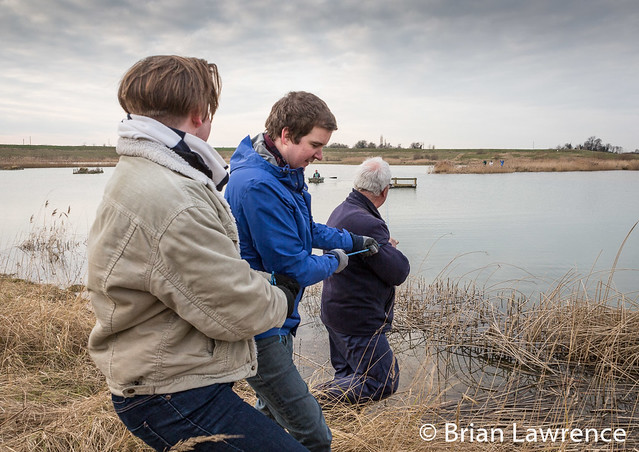In 20 years of Athene Communications, one of our proudest and most long-standing relationships has been with the Langdyke Countryside Trust – a nature conservation charity led by our Chairman, Richard Astle.
Our love of the natural world is cemented in our name, Athene – after Athene Noctua, or ‘Little Owl’. And in the years since, our work has been led by the belief that companies aren’t just there to make profit, but make a difference too.
At volunteer days and team trips, we have planted an orchard, cleared reeds from ponds and built habitats for bird species. On a return visit to Langdyke, we spoke to Richard Astle about the charity, it’s work and the links between business, the landscape, and our climate crisis:
What is the Langdyke Countryside Trust?
The Langdyke Trust was established in 1999 and it’s a charity with a specific intention of helping nature recover in the landscape between Peterborough and Stamford.
Set up back in 1999 by four local people, it’s very much an organisation that has got that community ethos right the way through it, and it’s all about local people doing their bit for the countryside and nature, whether it’s in their gardens or on Langdyke’s reserves.
We’re a membership organisation and today we have about 215 household members, and around 335 individual members. We have volunteer work parties at our reserves every Monday and Thursday. I think for a lot of our volunteers there is that reward in feeling that they are doing their little bit. That they are making a difference.

What changes have you seen in the local landscape over the years?
We’ve had a lot of quarrying activity locally, so we’ve seen an awful lot of new wetlands and waterbodies being created, which is very good for nature. But I think the biggest change is not really in the landscape. Landscapes don’t really change greatly over a short period of time – they evolve over millennia.
I think the fundamental change has been about people’s attitudes and people’s sensibility to nature and a realisation that we are losing nature very, very fast. I think people, particularly perhaps those who live in rural areas, are very conscious of seeing less nature and are aware that things are disappearing – whether that is particular trees that have disappeared or a species of bird, such as swifts, cuckoos and even sparrows, that are so much scarcer than it used to be.
I think that the crisis is coming home to people now, and more and more people are trying to do their bit for nature. They’re trying to make a difference, they want to get involved.
What shifts have you seen in terms of our clients prioritising sustainability?
When I set up Athene in 2003, for a lot of our clients sustainability was something you might do if you got round to it, a bit of a ‘nice to have’. It wasn’t anything like it is now in terms of being very high on a lot of companies’ agendas around what they deliver and how they deliver it.
Today, from the top down, across our client base, all of them are taking action in one way or another. We do a lot of work with schools and many of our schools are running climate change campaigns. They’re running these campaigns to encourage people to not just turn off the lights,but take actions in terms of their own usage of energy, whether they’re insulating their roofs or insulating their buildings.
A lot of our housing clients too, are now taking into account things like biodiversity net gain policies, and the increasingly demanding sustainability targets in house building itself. So you’re seeing across all industries, people taking this far more seriously than ever before.
What are the long-term plans for the Langdyke Trust?
There are big issues in the landscape around flooding. Just recently we’ve had two big storms. You’ll have seen, if you’ve travelled through this area, the amount of surface water on the fields.
I think that it’s an opportunity for organisations, like Langdyke and other conversation organisations to work in partnership with farmers to find those solutions.
We’re not farmers, and we can’t advise them on the nutrition in the soils or anything like that, but we can help and advise them on how to create wildlife corridors, how to revert some aspects of the field system to nature without giving away profitability.
As this is a farmed landscape, working side by side with farmers to repopulate the area here, we could make it much richer for nature. If we plant more trees, more hedges, create wetlands.
What I think is really interesting, is that so many farmers are on that journey already. We’re having a lot of great conversations with farmers who are very interested in how they can make that happen, how they can allow nature to flourish on their own land.
For more information on the work of the Langdyke Trust, you can visit their website. And for more info on our work in the Sustainable sector – visit our web page.
